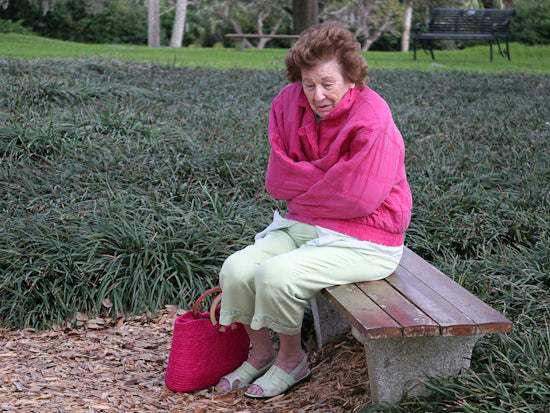National Missing Persons Week highlights that elderly groups are at risk
The elderly and those living with dementia have once again been highlighted during National Missing Persons Week, July 30-August 5, as those most at risk of going missing.

July 30-August 5, 2017 is National Missing Persons Week (Source: Shutterstock)
Each year the National Missing Persons Coordination Centre builds community awareness messaging around one of the key groups most at risk of going missing, with this year’s focus on youth.
Australian Federal Police (AFP) National Coordinator Victim Based Crime Marina Simoncini says that although the focus of this year’s National Missing Persons Week is youth, it is ‘important that we continue to educate the Australian community about those living with dementia and the potential for them to become missing’.
“The elderly, particularly those living with dementia, are one of the groups in our community vulnerable to going missing,” she says.
In 2014, the focus of National Missing Persons Week was dementia, after research identified that elderly persons, particularly those with dementia were one of the key ‘at risk’ groups of going missing. The AFP partnered with Alzheimer’s Australia to launch the 2014 National Missing Persons Week, highlight the correlation between people living with Alzheimer’s related issues and going missing, and to implement and develop the ‘Safely Home Initiative’.
“Discussions continue with Alzheimer’s Australia, in consultation with the Police Consultative Group on Missing Persons, to implement and develop the ‘Safely Home Initiative’ in every state across Australia,” Ms Simoncini says.
“Interestingly the prevalence of missing persons and people with dementia has decreased statistically – we believe this is in part due to campaigns and the Alzheimer’s Australia ‘Safely Home’ program.”
During the 2014 research, which resulted in the focus on the elderly and those living with dementia, interviewed state and territory police suggested more males than females comprised the missing population with dementia and showed that most were found within 48 hours although a few in the larger jurisdictions died while still missing, due to the environmental conditions they were exposed to.
Ms Simoncini says that there are some measures loved ones of elderly people and those living with dementia can put in place if they are afraid they could go missing.
“We (National Missing Persons Coordination Centre) are here to play an active role in coordinating national police efforts, and educating the Australian community to prevent the incidence and impact of missing persons in Australia,” she says.
“If you care for a person living with dementia that may be at risk of wandering and going missing, consider whether registration in a safe return program, an ID bracelet, or other means of identification may be suited to your situation.”
Find out more about the elderly, dementia and missing persons through the National Missing Persons Coordination Centre, or contact Alzheimer’s Australia in your state through the National Dementia Helpline on 1800 100 500 to find out more about the ‘Safely Home Initiative’ in your area.























